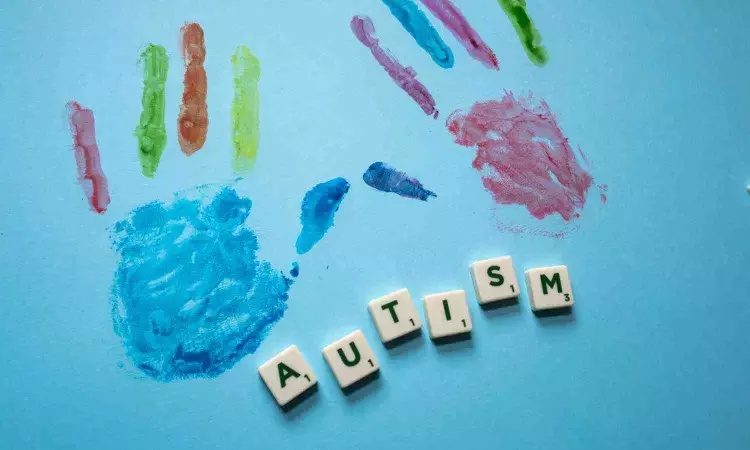- Home
- Medical news & Guidelines
- Anesthesiology
- Cardiology and CTVS
- Critical Care
- Dentistry
- Dermatology
- Diabetes and Endocrinology
- ENT
- Gastroenterology
- Medicine
- Nephrology
- Neurology
- Obstretics-Gynaecology
- Oncology
- Ophthalmology
- Orthopaedics
- Pediatrics-Neonatology
- Psychiatry
- Pulmonology
- Radiology
- Surgery
- Urology
- Laboratory Medicine
- Diet
- Nursing
- Paramedical
- Physiotherapy
- Health news
- Fact Check
- Bone Health Fact Check
- Brain Health Fact Check
- Cancer Related Fact Check
- Child Care Fact Check
- Dental and oral health fact check
- Diabetes and metabolic health fact check
- Diet and Nutrition Fact Check
- Eye and ENT Care Fact Check
- Fitness fact check
- Gut health fact check
- Heart health fact check
- Kidney health fact check
- Medical education fact check
- Men's health fact check
- Respiratory fact check
- Skin and hair care fact check
- Vaccine and Immunization fact check
- Women's health fact check
- AYUSH
- State News
- Andaman and Nicobar Islands
- Andhra Pradesh
- Arunachal Pradesh
- Assam
- Bihar
- Chandigarh
- Chattisgarh
- Dadra and Nagar Haveli
- Daman and Diu
- Delhi
- Goa
- Gujarat
- Haryana
- Himachal Pradesh
- Jammu & Kashmir
- Jharkhand
- Karnataka
- Kerala
- Ladakh
- Lakshadweep
- Madhya Pradesh
- Maharashtra
- Manipur
- Meghalaya
- Mizoram
- Nagaland
- Odisha
- Puducherry
- Punjab
- Rajasthan
- Sikkim
- Tamil Nadu
- Telangana
- Tripura
- Uttar Pradesh
- Uttrakhand
- West Bengal
- Medical Education
- Industry
Vitamin D3 nanoemulsion significantly improves core symptoms in children with autism: A clinical trial

This study investigates the effectiveness of a vitamin D3-loaded nanoemulsion in improving the core symptoms of autism spectrum disorder (ASD) in children. Children with ASD often have low vitamin D3 levels, which are linked to delays in language development, adaptive behavior, and fine motor skills. While traditional vitamin D3 supplementation has shown mixed results in past studies, this research evaluates whether a nanoemulsion form-engineered to enhance absorption and bioavailability-might produce better outcomes.
Eighty children between the ages of 3 and 6 with diagnosed ASD were randomly assigned into two groups: one receiving the vitamin D3 nanoemulsion, and the other receiving a standard marketed vitamin D3 product, both for a duration of 6 months. Their vitamin D3 levels, adaptive behaviors, and language abilities were assessed before and after supplementation using standardized tools such as the Childhood Autism Rating Scale (CARS), Vineland Adaptive Behavior Scale, and Preschool Language Scale. Only the nanoemulsion group showed statistically significant improvements in vitamin D3 levels, autism severity, social IQ, and both receptive and expressive language performance. The conventional supplement, despite raising blood vitamin D3 levels, did not lead to meaningful improvements in behavioral outcomes.
The study concludes that the nanoemulsion form of vitamin D3 is superior to the conventional oral form in terms of increasing vitamin bioavailability and producing clinically relevant improvements in children with ASD. The authors suggest that nanoemulsion technology could offer a valuable strategy for enhancing the effectiveness of nutritional interventions in neurodevelopmental disorders. However, they acknowledge that further studies with larger sample sizes and long-term follow-up are needed to confirm these findings and explore potential gender-related differences in response.
Reference:
Nagwa A. Meguid, Maha Hemimi, Gina Hussein, Ahmed Elnahry, Marwa Hasanein Asfour, Sameh Hosam Abd El-Alim, Ahmed Alaa Kassem, Abeer Salama, Amr Sobhi Gouda, Walaa Samy Nazim, Radwa Ibrahim Ali Hassan, Neveen Hassan Nashaat, Improved core manifestations of autism following supplementation with vitamin D3-loaded nanoemulsion, LabMed Discovery, https://doi.org/10.1016/j.lmd.2025.100071.
Dr Kamal Kant Kohli-MBBS, DTCD- a chest specialist with more than 30 years of practice and a flair for writing clinical articles, Dr Kamal Kant Kohli joined Medical Dialogues as a Chief Editor of Medical News. Besides writing articles, as an editor, he proofreads and verifies all the medical content published on Medical Dialogues including those coming from journals, studies,medical conferences,guidelines etc. Email: drkohli@medicaldialogues.in. Contact no. 011-43720751


